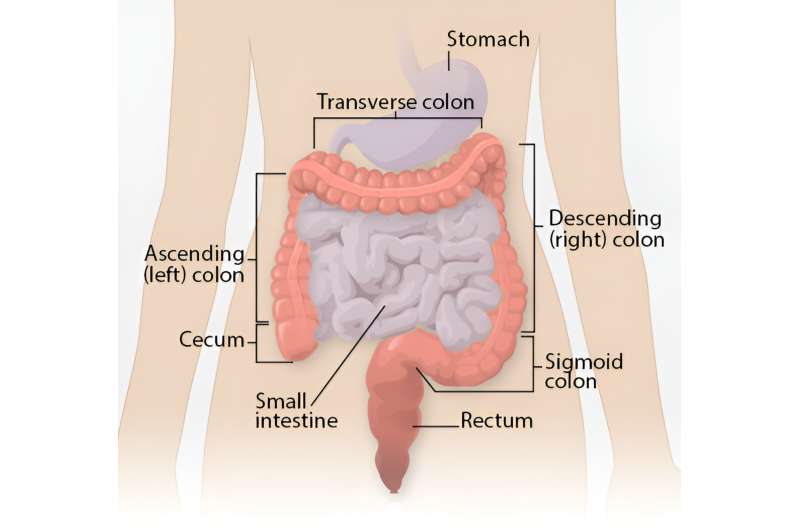This article has been reviewed according to Science X's editorial process and policies. Editors have highlighted the following attributes while ensuring the content's credibility:
fact-checked
peer-reviewed publication
proofread
Study reveals colon tumor location matters for metastatic disease

Colon cancers that spread to the liver may be substantially different depending on the location where cancerous cells originate, according to new research. The study led by Yale Cancer Center researchers at Yale School of Medicine and Yale School of Public Health provides insight into the unique biology of right-sided and left-sided tumors, which may impact treatment options and patient outcomes.
The results were published in Cancer Letters on Sept. 14.
"These findings show that metastatic tumors to the liver originating from different locations in the colon have distinct behaviors," said senior author Sajid Khan, a member of Yale Cancer Center and section chief of Hepato-Pancreato-Biliary & Mixed Tumors at Yale School of Medicine.
The research team analyzed metastatic tumor samples from patients with colon cancer liver metastases. Liquid chromatography-mass spectrometry and RNA-sequencing were used to examine the metabolic and genetic characteristics of tumors derived from the right side (RCC) and left side (LCC) of the colon cancer.
The results demonstrated that patients with liver metastases originating from the right side had poorer survival rates compared to those with metastases that derived from the left side of the colon. The metabolomics findings showed higher levels of reactive oxygen species and bile acids characterized RCC-derived metastatic tumors, while they did not characterize LCC-derived metastatic tumors. Elevated rates of reactive oxidation species contribute towards converting normal cells to cancer cells.
Researchers also found that the transforming growth factor-b signaling pathway (TGF-b) may be a mechanistic driver of right-sided colon cancer liver metastasis and account for inferior survival rates and resistance to targeted therapies. The TGF-b pathway plays a critical role in colon cancer development and generates reactive oxidation species.
"This knowledge will help us tailor treatment strategies and improve outcomes for patients with liver metastases," said Khan, who is also the co-director of Team Science at the Yale Cancer for Clinical Investigation, "no matter what side of the colon they originate from."
More information: Montana T. Morris et al, Multi-omic analysis reveals metabolic pathways that characterize right-sided colon cancer liver metastasis, Cancer Letters (2023). DOI: 10.1016/j.canlet.2023.216384




















